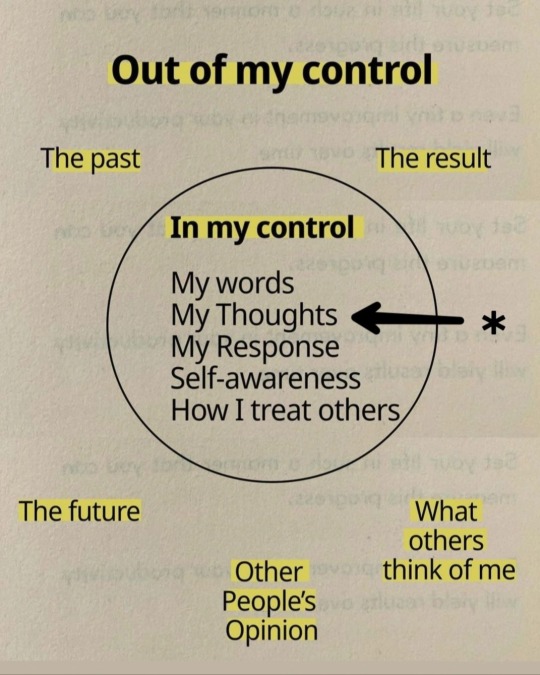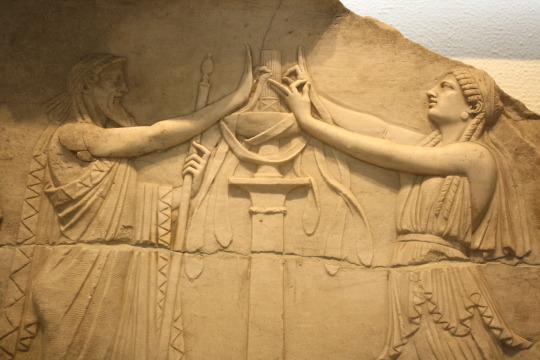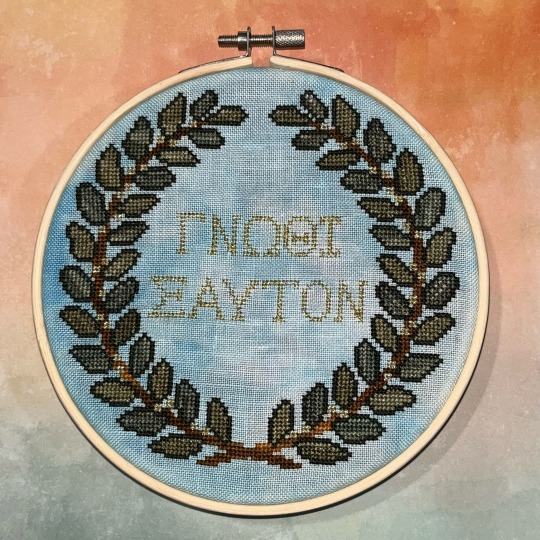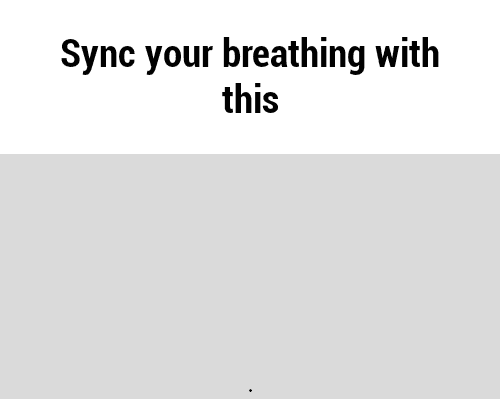#delphic maxims
Text

* You're not responsible for every thought that comes in and out of your head. They're not necessarily within your control, not initially anyways.
It is within your power, however, to decide which ones you want to hold on to and those you wish to discard.
You're responsible for observing thoughts that flow inward and choosing whether or not you act on them, buy into them, or take ownership of them.
#KnowThyself
#TheWolfYouFeed
#IsTheOneThatWins
#stoicism#stoics#the stoics#western philosophy#philosophy#self improvement#know thyself#greek aphorism#delphic maxims#apollo#temple of apollo#Delphi#the wolf you feed#the wolf you feed is the one that wins#proverb#two wolves
252 notes
·
View notes
Text
Delphic Maxims 52
Εὔχου δυνατά
Pray for things possible

17 notes
·
View notes
Text
Daily delphic maxims
Day twelve (8/10/23)
If you are a stranger, act like one
To me, this is a little hard to explain. Basically, if you don't know what your doing, act like it, same if you don't know the people. Don't jump in and assume to know things, instead take the time to learn.
Sorry for the lack of posting. Work has been long and stressful.
#hellenic paganism#hellenism#hellenic polytheism#hellenic polythiest#theoi#hellenic#hellenic deities#hellenic gods#hellenic pagan#hellenic devotion#delphic maxims
43 notes
·
View notes
Text
Making a helpol poll (mouthful) because I'm curious -
Please reblog I really am curious what other people do :) + feel free to elaborate if you want <3
#helpol#hellenic pagan#hellenic polythiest#pagan#hellenic polytheism#hellenic polytheist#hellenic paganism#hellenic devotion#hellenic pantheon#paganism#paganblr#poll#delphic maxims
20 notes
·
View notes
Text

Know yourself
Know that you are mortal
Know your place
15 notes
·
View notes
Text
Me: Do a series on the Delphic Maxims!
Also Me: That's a lot of writing though....
Thoughts, HelPol Tumblr?
#hellenic polytheism#hellenic pagan#hellenic devotion#hellenic reconstructionism#helpol#hellenic paganism#hellenic polytheist#hellenic community#delphic maxims
18 notes
·
View notes
Text
I’ve decided to randomly pick a delphic maxim to try to incorporate into my day every day.
today is number 85

“Use what you have”
#parker talks#hellenic polytheism#hellenic pagan#hellenic paganism#hellenic polytheist#helpol#hellenic polythiest#delphic maxims
15 notes
·
View notes
Text
Ἕπου θεῷ
001 - Follow God
Maxims number one! It’s funny getting to know the lessons on a polytheism religion and in the very first one we have “Follow GOD” in the singular. It may sound wrong and confusing at first, but bear with me.
The Delphic Maxims were brought to us through the oracles, belived to be a messege from Apolo himself, so why would he, being one of many Gods, speak in the singular? Simple, when he says “God” he doesn’t mean an monotheism entity, but rather an concept of divine.
Follow the divine, follow what’s sacred, follow what’s holy and pure. Follow God. This is a lesson on spirituality and belif, belive and follow something that you can’t touch, but can feel the effect on everything and everyone, speciality on yourself.
I can’t help but notice that this maxims doesn’t feel like an order nor a demand, it looks like an suggestion, an advise. It comes with a sense of guidance rather than commandment. The gods are not tiranes who demand our worship, they can be at ease with all their power with or without us. They don’t need our devotion, but they understand the importance of following the divine.
The Gods are guidders and loving, they are benevolent and good. Follow their way and thrive on the sensations it evoques.
Disclaimer: This is my interpretation of this Delphic Maxims, be free to reflect and draw your own conclusions. If you think I am misguided or mistaken in any way, you can always send me an ask or messenge me.
#delphic maxims#Delphic Maxims of the day#delphic maxims 001#Follow God#hellenic polytheism#english is not my first language
16 notes
·
View notes
Text

Meditating on the Gods
Currently while I meditate I cannot do so without having a focus - my breath, a word or phrase, or a distant point.
I would like to further my meditation practice now, and have chosen a few sources of words or phrases to say, relating to Hellenic Polytheism, that I would like to share with you.
Delphic Maxims
There are 147 maxims to choose from, so no shortage of inspiration here. Particular favourites of mine that I'm looking forward to using are:
know thyself
nothing in excess
if you have, give
be grateful
dissolve enmities
respect the gods
Philosophy
I am currently rereading Marcus Aurelius' Meditations (yes, really) and am slowly gathering lines from his collection to use, including:
no one can lose the past or future - how can one be deprived of what one does not possess?
direct your mind
surrender yourself to Clotho
prayer should be simple and open
to what use am I putting my soul?
live with the gods
Additionally there are many other philosophical ideals or schools of thought that you could pursue. You may have heard some of these under the term "pillars of hellenismos," which is nonsense and a term originally coined by authors of no worth. But the virtues and ideals themselves are worthy of investigation. My favourites include:
xenia
kharis
eusebeia
arete
eudaimonia
The Gods
Finally, the gods themselves. Repeating a gods name or an epithet I wish to connect to sounds like the perfect way to direct my thoughts in their favour.
There is also the option of Theoi or Agathoi Theoi to encompass the pantheon as a whole.
🪨
These are just a few of my ideas so far. meditation is just one method of bringing calm, focus, to clear your mind, and a tool to help develop ideas. I hope these help you, and if you have more to add of your own feel free!
44 notes
·
View notes
Photo

Delphic Maxim: Do Not Exalt Above Anyone (at first meeting)
#pureink#ink sketch#ink drawing#ink#traditional media#traditional art#my art#artistforhire#artists on tumblr#Polish artists#Polish art#monochromatic#monochromatic art#deerbard#ilustracja polska#ilustrator#delphic maxims#maksymy delfickie#do not exalt above anyone
6 notes
·
View notes
Text

Maxim 123 - Χρησμοὺς θαύμαζε - Admire oracles
This maxim could be taken literally as a bit of delphic marketing for the oracles or we could pull it apart a little more.
The oracles were women chosen by the gods through which divine advice would be spoken through them. So to admire, that is respect and regard warmly, the oracles was to admire the divine advise from the gods.
I don’t know about you but I definitely admire ANY and ALL advice I get from the Gods, even when its not spoken.
Do you agree with this take on this Delphic maxim? Have you received any advise from the gods? Was it through a person or another way? (If so, then what way?)
#pagan#paganism#hellenic paganism#Hellenismos#hellenism#hellenic#hellenic polytheism#hellenic polytheist#hellenic community#polytheism#delphic maxims
3 notes
·
View notes
Text
On Giving Sources
Since we’ve recently had some lowkey discussion going on about sourcing our gleaned knowledge (or at least I have seen it arise), I want to debunk some ideas I see popping up.
One of the main ones I’ve seen is the idea that providing sources is too “academic” feeling. As someone who is currently in college and thus you would think researched out, I want to remind all of us why sources are used in academia. All of us are capable of just… saying anything we want. And this can be both wrong on purpose or by accident. I could tell you that I have six missing teeth and you have no way to prove me right or wrong without corroboration from my dentist or someone like a parent. Even if you counted my teeth, you couldn’t actually prove it is six teeth. Plus, the wording is key. “Missing.” What do I mean by that? Do I mean I never got them? That they were extracted? Now, if I were to link my dental charts to you, then you could look at them and go “Oh. She had six teeth extracted so she has six fewer teeth than she should.” But alternatively, I could say my mom is missing five teeth right after this and you might assume from that same wording that she also had five teeth extracted. But that’s not correct. My mom was born without one adult tooth. So literally, she just is missing a tooth and had four extractions. But again, you couldn’t confirm that without the dental records. But without the dental records, you would just have to trust that I’m an honest person on the internet and you don’t know that. You have no proof that I am honest beyond my word and shocker, dishonest people will say they are so that’s not reliable either. Similarly, you can think of this in term of mathematics. How many of you tried to just write an answer for some problems in higher math and got a nice note from your teacher of “Where’s your work?” or something similar. Giving your sources is essentially showing that you are honest and also saying “Here’s my work.” Academia prioritizes sharing sources for accuracy checking. Which by checking the accuracy, has the fun side effect of proving one’s honesty.
But beyond the fact that sources show your research, we need to also admit that not all sources are equal. I can love some of the posts on Persephone that float around… but I’ve seen as many with biased or just… bad sources listed as I’ve seen with good ones. And no, good and bad are not the same as “I agree” or “I don’t agree” with the source. A good source should be rooted in more than just conjecture. For instance, its evidence can be found in archaeology. A good source should have correct dates, good context, and good reasoning. Again: anyone can say anything. Which means they can lie. A bad source can be outdated, have incorrect information, take something out of context, or just make wild reaches. And yes, I’ve seen bad sources used before. Or just… incorrect quotes of good sources so… yeah. Listing them allows for clarity, for honesty and just… double checking.
In addition: sources can be biased. We can have bias, yes. But your sources aren’t excluded from that same issue. And let me clear: that bias can be in favor or against. Both can be a problem. But if you don’t give us your source, no one can double check it for bias that you may have missed. And again, this also relates back to the honesty thing. If you don’t tell us where you derived your ideas from, we can’t trust that you aren’t passing on bias to us. To take an example here of translation bias: Sappho. We can argue to the cows come home on her sexuality but frankly, it’s a mess because we can’t ask her personally and that really is the only way to know for sure what a person’s sexuality is. So we’re left trying to parse out translations of centuries old Greek and hope we can glean enough to guess. Up until the 1900s, those translations (after Christianity mainly but sometimes before) actively changed words or purposely chose male versions of them whenever they could (and sometimes even when they couldn’t). They did that out of a bias against homosexuality. While we have done a lot of work to undo that, we still fall victim to similar attitudes now. Now, sometimes gender neutral words are translated as male, female, or neutral depending on the translator’s bias. Are they pro-LGBT? Translated as female most likely, maybe neutral (my personal fave way since we can’t really ask the author her intent and leaves it open to the reader to interpret. I love some ambiguity in poetry). Are they homophobic? Then male translations still abound. So bias abounds, but as most people don’t know ancient Greek, it makes it so many will just take their particular translation’s version as right. But if someone were to post a quote of these translations, we may not be able to catch that translator’s bias if they don’t tell us where they got it from. Because we can’t then look at the translator and make that judgment call or in some cases just research them and go “Ooh yikes.”
Also, I do have to say in relation to this: I have seen bad art history frequently thrown around as “proof.” Y’all, if I need to sit you all down and give a lecture on why iconography in art is hard, I will. If I need to sit you all down and explain how limited color palettes work in art, I will. But stop ignoring these things just because they disprove your theory. For one example of bad art history I’ve seen recently: Aphroditus and Hermaphroditus have IDENTICAL ICONOGRAPHY DURING THE SAME PERIODS. So unless you have a nice written component on the statue stating the name of the god, technically, you are taking a 50/50 stab unless you’ve got some dates, regions, and more archaeological evidence than just what your eyeballs see. And even then, you’re still guessing. Both use the same poses, the same body type, the same freaking everything, in the same time frames and even the same regions AND THAT IS WHY YOU SEE PEOPLE MIXING THE TWO UP. STOP IT. YOU ARE ALL BEING STUPID BECAUSE ART HISTORY IS EXTREMELY NUANCED WHEN IT COMES TO ANCIENT HISTORY. MOST OF THESE GODS ARE IDENTIFIED BY ICONOGRAPHY NOT BY A NICE NAME PLATE ON THE STATUE.
But most importantly, I will always ask for sources because… I just want to read it. I love learning and reading. Always have. And so do many others. Many of us want to learn. So it benefits none of us if you hoard your sources like some dragon. Share so that we can all share in the knowledge. As my mom used to say as she rolled her eyes over my brother and I fighting over who got to read a book first: “The words will still be there after the other one reads it. They’re not going anywhere so there’s no need to fight over who gets to read it first.” Guys, you are all acting like if you share your source, one of the things that will happen is that is vanishes into the aether, never to be read again. No. Your copy of it will still be there when you go to read it again. Sharing it will not make it magically unreadable. Also, if you’re hoarding it to be “a resource” for others… let’s be real. That’s an entirely selfish reason that roots in your desire to be admired. You can be a resource and still share your knowledge. Hell, that’s the point of being a resource. You share knowledge, not hoard it. You’re playing gatekeeper, not being a resource if you hoard it.
Some of the other reasons I’ve seen for not giving sources is the lack of modern sensitivity to some. I know that sometimes, sources aren’t worded as carefully or respectfully as we’d like. I get it. Believe me, reading Freud a few semesters ago made me livid. My textbook in this section has nice little messy notes in the margins of me going “Sir, no.” No source will ever be perfect because humans are not perfect. So that’s not a good excuse. I don’t like reading books on abuse because I was abused. I frequently take breaks, put it down, and just… breathe. I may even need to take a day long break or sometimes even longer. But that said, I do still have to read them sometimes. And that can mean just… going into it knowing it will be hard and triggering and take time, but doing it anyway while taking steps to mitigate the negative issues. I won’t say it’s easy or fun. It’s not. It’s absolutely awful. I don’t enjoy having two weeks of nightmares (one of the main things I get with a trigger). But it’s something I accept as part of my life. The best I can do is prepare for when I have to deal with it and mitigate the fallout. Avoiding the issue isn’t the only way to cope with issues. In fact, avoidance can become a maladaptive coping mechanism. On top of that, it’s not anyone else’s job to prevent my issues from controlling me. That’s my job. The better way to deal with a source being possibly triggering is to warn someone. List what issues you noticed and go “Hey, heads up, this exists so be aware when you choose to read this.” (Quick note: you can do this as well if you notice bias as well.) Paired with this: if you choose to read a source knowing it has issues that may trigger you, it is not anyone else’s fault if you do get triggered. You took on the risk and this is a consequence of it. It’s not anyone else’s fault that you were not able to handle it. I didn’t run to documentary makers on abuse and go “You triggered me with the scene of the kid on the stairs watching the abuse.” It is not their fault that I literally was the kid on the stairs in my past. It is not their fault that I regressed to that moment in my memory. I saw the warning, and I chose to proceed anyways only to find out that I was not as prepared as I thought. And that is a result of my decision, no one else’s.
Let me be frank: giving your sources is not a way to lord over others. We need to normalize this. Normalize telling people where you found the evidence. Normalize warning people about issues in a potential source. And normalize giving your sources to promote community wide knowledge rather than being a dragon with a hoard of books that only you can read. All of these things are good things, not bad ones. Nor are they “too academic” for you to do. They’re basics for the internet when you’re dealing with niche topics since the internet is a place where anyone can and will lie if they think it gets them something.
Another issues I’ve seen bounced around against giving sources is how it’s too rooted in academia and thus brings the issues that come with academia. For instance, that academia is very difficult to access for sourcing. And you know what? Yes. Yes it is. I will not deny that. Which is part of why I’m doing what research I can while I have access, and I’m partly doing that by downloading what articles are allowed. Why? So that not only do I have a copy to peruse at my leisure, but so if someone else really is interested in one of those articles and struggling to find it, I can go “Oh, hey, I have a copy.” Or for some of the ones I tracked down through alternate sites and not my school library, I can share that. One of the ways you can break down some of the issues with academia being so cloistered is to share the articles, alternate access methods, and just citing the place where you gathered the knowledge. Especially as these sources can also be expensive to get access to. Sharing is a way to help get around the monetary hurdle to good information.
It's been almost a year since I originally wrote this post and then never posted it, but just to add on a bit more current events that I do hope will help you all understand why this is so important. Let’s talk about hbomberguy’s video on plagiarism, Todd in the Shadow’s debunking video, and James Somerton. This situation encapsulates why citing and sharing your sources is so vital, no matter what subject you are speaking on. James Somerton plagiarized a lot, and he covered it by lackluster or just completely missing citations. He is not some exception or one-off case. There are many in the world who do this. You will not know unless you run their work through a plagiarism checker or otherwise figure out that it was plagiarized by familiarity or chance. Todd’s video meanwhile exposed how when Somerton wasn’t stealing someone’s words, he was just… making “facts” up by pulling shit out of his ass, if you will allow me to be crude for a moment. He had no factual, historical, or any other proof beyond “I said it.” Some of this was so blatantly false that it’s genuinely disturbing that people just… believed it. You all need to learn to be critical and keep your brains engaged while researching. You should not blindly trust every source. This comes back to the idea of bias and honesty. If you do not do your due diligence to check for potential bias, blatant lies, or provable facts, you will be mislead and miseducated by someone who just sounds right or can construct a half-baked argument. If someone isn’t giving their sources, you should be wary. You should be aware that no source leaves so many options open. Did they plagiarize this? Did they make this up? Is there any proof of this? Is this their opinion and not fact? If we take anything else from James Somerton’s exposure, let it be to be more critical and engaged when consuming content. To confront the ideas presented and interrogate them with logic. If you have gotten into the deeper research, you know how to do this. If you have made it through college, you should have at least learned how to cite a source. You should have realistically learned to engage with information with critical thinking and logic. If more than a handful people had done this with James’s material before hbomberguy, he likely never would have gotten away his crimes for years. Yes, he did the wrong first, but we, as a community, failed to do our due diligence and stop his acts earlier. Those who engaged with his content all failed in some part by not just… thinking. Do not take anyone at their word online. The internet allows people to present their best front and that leaves the door open for manipulative people to indulge in their worst tendencies.
And now… for Hellenic polytheists… let’s get into the Delphic Maxims. “Know what you have learned.” “Long for wisdom.” “Help your friends.” “Listen to everyone.” “Give what you have.” “Be a seeker of wisdom.” “Consult the wise.” “Use your skill.” DO I NEED TO GO ON? These are just some of them that deal with knowledge and sharing. These are some of the virtues that, depending on the origin you like, were extolled by the Greeks or even given by Apollon. Maybe, just maybe, you should try to follow them. But what do I know? I’m just enjoying my time with access to higher academic sources to gather as many as I can while I can so that maybe I can pass on the knowledge from them while making a list of them. To give what I have to the community. But if you want to be greedy and selfish, go off I guess and hoard that damn source lest the words disappear off the page. I’m sure the gods will be so happy with this.
But let’s be real about the kind of citations most of us want when it comes to content you post online outside of academia. It’s not too “academic” or difficult to fucking list them. Most of us don’t even want like a full correctly formatted list. We just want “Oh hey, I got these from these books/articles” and maybe a link. We’re not asking for correct CMS or APA formatting for your fucking citations. We just want the name of the book or article and the author. Gods, how dare we. So needy to ask for the bare minimum about the source. How horrific of us. We aren’t even making you cite each particular idea to a particular source. We aren’t even expecting an exact page number! Also, if I’m going to be real: there are literal citation generators and since you’re not being graded on how correct every little ticky tack part of your citation is, you can go hogwild with them. Heck, some will even pull all the relevant stuff up for you if you link a source into the generator. You could literally be the laziest citation maker ever here if you did want to be a little more classy or specific than a list. Let’s be real: if you aren’t listing because you can’t be bothered, you’re lazy. Or worse, you’re not listing because you don’t want anyone to catch you in your lies. And the latter is not all right. If you want to lie, the only nice thing I can say is that lies have short legs. It’ll come out eventually, and your clout will not save you then. James Somerton can attest to that.
In case you can’t tell, frankly, if you’re not willing to share your sources, I personally am getting real sick of the excuses you give. Because that means at best, you’re selfish and want to be the only one with the key to the knowledge. Or maybe just extremely lazy. At worst, you’re likely lying and hoping no one will find out by claiming “Oh I found it somewhere.” None of these is a good look. Just… show a fucking iota of thought for others. Give trigger warnings specific to some sources if you feel it necessary. List them so we all can share in the knowledge. And live your life. It’s not that fucking difficult.
I say this as someone who runs a podcast where I go in depth on Ancient Greek religion. I provide citations in my shownotes. I verbally reference my sources. I point out where I listed them and encourage people to read those sources. I want the communities I’m in to thrive and so I share my sources with citations. I do this so anyone can check my information. You all can see where I got these ideas and how credible they are. I don’t do this because it’s easy or fun to figure out the best way to do it. It’s hard to cite a source when you’re doing a speech without a visual component. But I do it anyway because to be blunt, I consider it my duty as a presenter of knowledge. I do it because it is the right, ethical, and honest thing to do. And I sincerely hope that if this essay gains some traction, everyone will do the same. Be forthright. Be honest. Be better going forward.
#hellenic polytheism#on giving sources#citations are important#history#delphic maxims#do better tumblr#do better as a whole#no i will not put it behind a read more#deal with the wall of text
0 notes
Text
Delphic Maxims 47
Εὐλόγει πάντας
Speak well of everyone

13 notes
·
View notes
Text
Daily delphic maxims
Day twenty-four (9/5/23)
Praise the good
We shouldn't just praise the good today, but everyday. The good reminds us of what it means to be human, to have empathy and compassion for the world around us. So as you praise the gods, praise the good in the world!
Also praise the good you have done in the world, don't diminish your accomplishments, someone somewhere has been changed by your good actions.
#hellenic paganism#hellenism#hellenic polytheism#hellenic polythiest#theoi#hellenic#hellenic deities#hellenic gods#hellenic pagan#hellenic devotion#delphic maxims
49 notes
·
View notes
Text
There are so so so many ways to experience the gods.
There is no right or wrong way. There is no blunt way. Its all feeling and ephemeral.
If you've felt warmth, if you've had a dream, if you've seen a crow that stares at you for too long, if something inexplicable happens and you're lucky suddenly, if you've caught eyes with a stranger and felt like you knew each other. If the candle flickers a certain way, if one time when you're singing your voice sounds gorgeous in a way you weren't expecting, these are all the presence of a god.
God phoning is popular on witchtok but half the time what they're saying is bullshit. I've very very rarely heard a voice and every single time it was my own voice, just suffused with something, saying something I normally wouldn’t say. Or maybe I would. I've never heard a clear, distinct, audible voice. Its an invisible world we're connecting with, its a different plain. We cannot experience it the same way we experience every day life.
We'll never sit down at a coffee table across from the physical manifestation of our god, and know that its them, not until after. And even then we can never be sure. That’s the nature of it. There are no absolutes, there cannot be. That’s what makes it beautiful. That’s where belief comes in. It isn't about being good enough or worthy enough or devout enough, that doesn't exist. That isn’t what its about at all. You are worthy even if the divine doesn’t manifest in a way we've been told is the only real way, and you are connecting even if you cant see it now. My most intense spiritual experiences are never something I realize are happening in the moment, its always only after that I can see it clearly.
The gods are all around us.
#Hellenism#Paganism#deity communication#my posts#I will never forgive witchtok for making an entire generation of pagans feel inadequate#You are good enough your practice is enough your experiences with the gods are good and normal#You don't have to have a godphone or intense dreams or whatever the hell they're claiming they're doing for clout#Even if what they're saying is true one of the Delphic Maxims is literally 'Do not boast about power'#Don't tear yourself to shreds#we all want to feel like this is real#to KNOW that this is real#but there is no way of knowing and having proof isnt the point#it isn't#it's about you and your soul and your spiritual journey and connecting with the magic in you#repeat after me#you are good enough.#the gods are with you in ways you cannot see#in ways you aren't meant to see#live your life#keep going keep building something in yourself take CARE of yourself#thats them guiding you too#ok to reblog
310 notes
·
View notes
Text
“Pray for what is possible” becoming less of a self-reminder and more a predictor of contention between myself and my fellow leftoids.
#blog meta#in the secular sense of prayer of course#one of the more explicitly anti-christian delphic maxims
2 notes
·
View notes